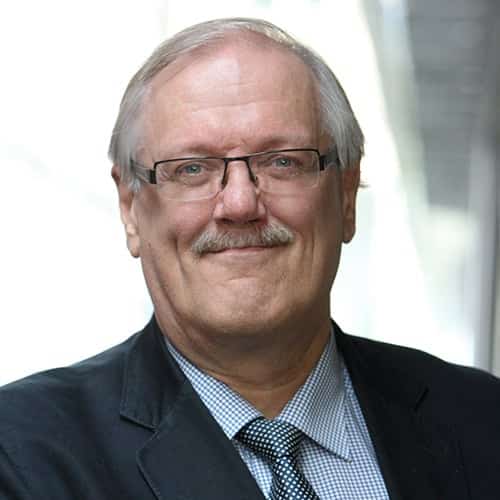NEW IDEAS IN COMPLEXITY SCIENCE
On May 24th, 2018, the First External Faculty Meeting of the Hub started with a public conference.
In short talks complexity scientists from all around globe shared their visions on the question “Complexity: Where do we go from here?”
What are the open, the most pressing, the most promising questions to an understanding of complexity and Big Data?
Find the talks of all conference participants (in order of appearance) on our Youtube channel in the playlist of the conference.
An overview with photographs of the event and links to all available slides can be found here.
KIMMO KASKI
“DATA IS THE NEW OIL, AND LIKE OIL DATA REQUIRES REFINING”
The subject of the talk given by CSH External Faculty member Kimmo Kaski, a professor in computational science at Aalto University, Finland, and a Supernumerary Professorial Fellow of Wolfson College, Oxford, is data—lots of data.
Every day, Kimmo says, we generate 180 zettabytes of data. “To give you a clue as to how much this is, with current internet technology, 180 zettabytes of data would take 450 million years to transfer from one device to another.”
Data, he continues, is the new oil. And like oil, it requires refining, i.e analysis, before it has any real value.
Kimmo uses an example from his own research. He and his team have a data set from a mobile phone company covering the whole of 2007 in an European country. The data cover 10 million subscribers, 3 billion calls and 500 million texts, and include demographic data such as gender, age, and most-used phone mast. Kimmo and his team combine these data with other open access data sets on temperature, hours of daylight and various country statistics.
“We made various interesting discoveries,” Kimmo says, including how people communicate with the opposite sex, the distribution of best friends by age, and how that changes. Kimmo’s team found that, on average, people rest for one hour less in summer. Even in cities, full of artificial light, people’s habits tend to follow the sun.
Kimmo likens this computational science approach to a “kind of social physics.”
“You are in indeed interested in the structure, function, and response, and the way to understand what those are is doing the analysis and doing the modelling. Here, I don’t mean the AI-type models, I really mean mechanistic models,” he says. “If the models are right, they can then be used for simulations or even forecasting.”
CLICK FOR KIMMO’S SLIDES.
See the video in full lenght here:

